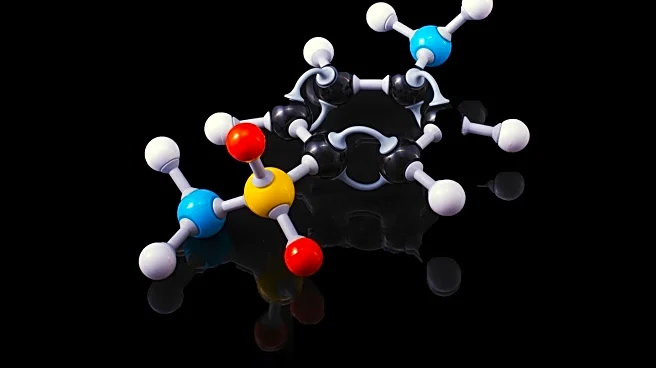What's Happening?
A Phase III clinical trial led by Professor Bryan Williams from UCL Institute of Cardiovascular Science has demonstrated the effectiveness of a new drug, baxdrostat, in significantly lowering blood pressure in patients with treatment-resistant hypertension. The BaxHTN trial, sponsored by AstraZeneca, involved nearly 800 patients across 214 clinics worldwide. Results presented at the European Society of Cardiology Congress 2025 in Madrid showed that baxdrostat reduced blood pressure by 9-10 mmHg more than placebo, with 40% of patients achieving healthy blood pressure levels. Baxdrostat works by blocking aldosterone production, addressing a key driver of high blood pressure.
Why It's Important?
Hypertension affects approximately 1.3 billion people globally, with half of these cases being uncontrolled or treatment-resistant, leading to increased risks of heart attack, stroke, and kidney disease. The introduction of baxdrostat offers a promising new treatment option for these patients, potentially reducing cardiovascular risks and improving health outcomes. The drug's ability to effectively lower blood pressure in resistant cases could transform treatment protocols and provide relief to millions of patients worldwide, particularly in regions with high hypertension prevalence.
What's Next?
The successful trial results suggest that baxdrostat could be integrated into treatment regimens for patients with resistant hypertension, pending further validation and regulatory approval. Healthcare providers may need to update clinical guidelines to incorporate this new treatment option. Additionally, further research could explore the long-term effects and safety of baxdrostat, as well as its potential application in other cardiovascular conditions.









